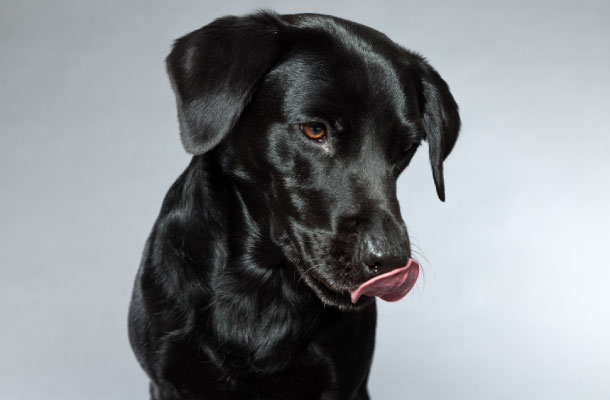GET STARTED!
New puppies and their owners have a lot to take in (nutrition and information!) so a little bit of research goes a long way in giving your puppy the best start. We’ve put together some feeding tips to help your puppy get used to their new diet and some key ingredients you should be looking for in their food.
In their first year, puppies go through a massive growth spurt so it’s important they are getting the right nutrition to fuel their development into adulthood. A strong nutritional foundation in their first fifteen months will help them reach their full potential which means feeding the right food in the right amount.
How much you need to feed your puppy depends on their age, breed, and individual needs. To figure out how much they will need to eat, you should take a look at the feeding guide on your dog’s food label. You should keep in mind the size they will grow to; different size dogs will have different nutritional needs so their diets should be tailored accordingly. Small-breed puppies have a higher metabolic growth rate and require higher amounts of energy from fats and protein. Large-breed puppies have a longer growth period and need specific levels (and ratios!) of calcium and phosphorus for strong bone development.

WHAT SHOULD I FEED MY PUPPY?
When it comes to feeding your puppy, there are so many options it can be confusing to pick the right one. A high-quality puppy diet should be formulated to their specific needs and include the essential nutrients they need to grow up to be healthy adult dogs. When you’re looking at a puppy diet, make sure the following nutritional needs are included:
Proteins
Every puppy’s diet should include high-quality proteins to help build their muscle mass. Proteins are the essential building blocks for muscle development and also help develop a healthy skin and coat.
Fats
Fats are especially important in a puppy’s diet. Puppies need a balance of fatty acids such as omega 3 and omega 6, to help absorb certain vitamins. Omegas help contribute to the glossy sheen you see in healthy fur!
Carbohydrates
One of the three main nutrients a dog needs, carbohydrates, along with proteins and fats play a key role as an important source of energy. Being such bundles of energy, Puppies are incredibly active and need sources of energy that can be quickly accessed like carbohydrates.

Vitamins and Minerals
Vitamins and minerals are key to a puppy’s overall health and well-being. Minerals like calcium, magnesium, potassium and iron help with bodily functions and prevent dietary deficiencies. Vitamin E helps support your puppy’s developing immune system and Vitamin A promotes healthy skin and a shiny coat. Puppies have a developing immune system that needs a helping hand to prevent sickness. Good puppy diets should include antioxidants and Vitamin-E to provide immune protection while they’re still developing.
DHA
DHA (docosahexanoic acid) is an omega-3 fatty acid which plays an important role in puppies reaching their full mental potential. DHA naturally occurs in a nursing dog’s milk and is essential for the growth and cognitive development of your puppy’s brain. It’s no secret puppies can be a handful to train which is why your puppy-diet should include DHA to support learning for training.
Calcium
It’s very easy for a puppy to not get enough calcium or too much calcium, which can cause problems down the track. Too much calcium can cause joint problems and not enough calcium can slow development. Getting the right balance of calcium and other minerals can be difficult so it’s important to find a science diet that has put in the research to find the right calcium phosphorus ratio.
Fibre
While they are growing, puppies need more energy from their diet than adult dogs but, like human babies, puppies’ mouths are much smaller with fewer teeth so they can find it hard to chew their food. Food which hasn’t been chewed properly is harder to digest and can make it difficult for their bodies to absorb nutrients. You should look for a diet with fermentable fibre sources to promote proper digestion, gut health and better stools!
HOW MANY TIMES SHOULD I FEED MY PUPPY?
It’s generally recommended to feed puppies three smaller meals a day if they are under five months of age, and twice a day as they get older. Puppies respond best to routine, so these meals should be served at the same time and place each day. It’s also important to monitor their weight, low amounts of physical activity or a slower metabolic rate might mean your puppy needs less food than is recommended. It’s best to go for regular check-ups with your local vet to make sure your puppy is tracking in the right direction (not just sideways)! Treats can also be a bit tricky. They are an important part of raising a puppy, especially when it comes to training but need to be factored into your puppy’s daily calorie intake and, ideally, shouldn’t make up more than 10% of their daily intake.

ADULT FOOD
When your puppy becomes an adult, you should start planning to transition them from puppy-food to adult-food. Puppy-food is usually much higher in calories to satisfy their higher energy requirements and often have added nutritional supplements to help them during their growth stage. It’s a good idea to talk to your vet about the best time to move to adult food which will depend on your puppy’s breed, size and individual needs. When your puppy is ready to switch, gradually transition to their new diet by slowly adding the adult-food to their puppy-food. Do this slowly over 7 days by mixing their new food in and slowly increasing the amount of adult-food while decreasing the amount of puppy-food. This will give them time to get used to their new food and minimise the chance of upset stomachs and the runs.
We hope this helps demystify what you should be looking for in a puppy-diet! With so many ingredients and claims the most important things to look for in a diet are high quality ingredients that provide the nutrients your puppy needs. Science diets are also important to make sure everything is in the right proportion and at the right ratios to give you the peace of mind that your puppy has everything they need for a healthy transition into adulthood.



